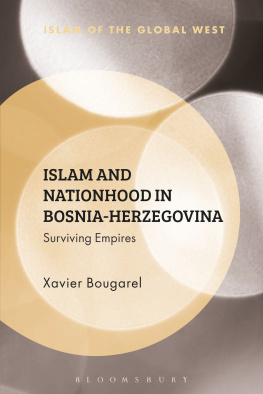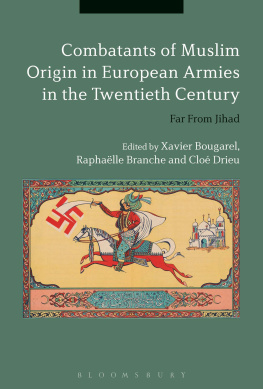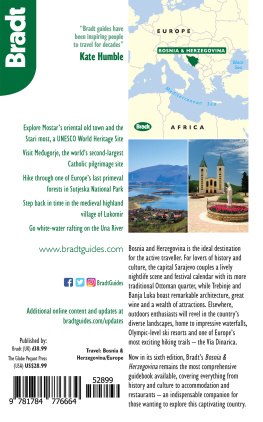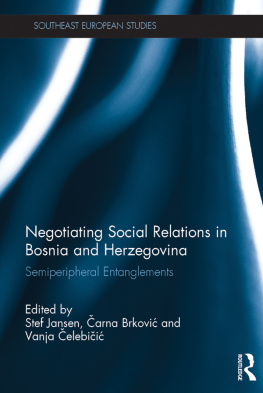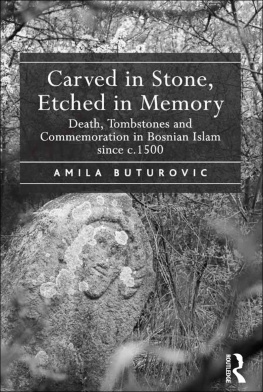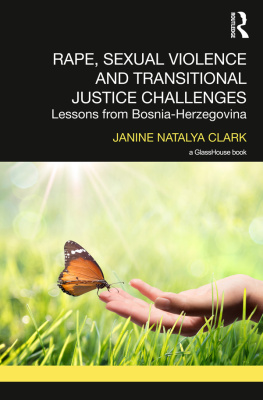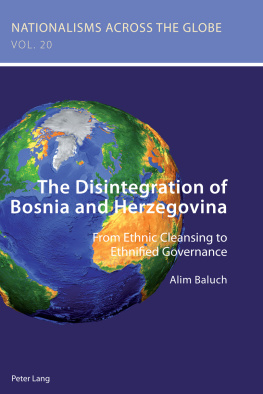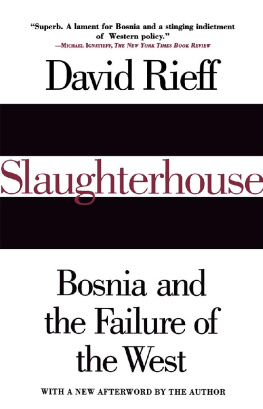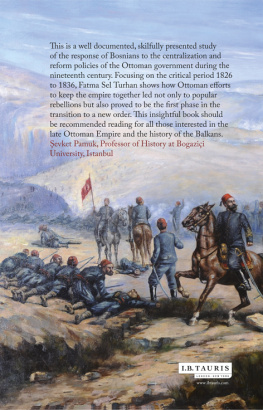
Islam and Nationhood in
Bosnia-Herzegovina
Islam of the Global West
Series editors: Kambiz GhaneaBassiri and Frank Peter
Islam of the Global West is a pioneering series that examines Islamic beliefs, practices, discourses, communities, and institutions that have emerged from the Global West. The geographical and intellectual framing of the Global West reflects both the role played by the interactions between people from diverse religions and cultures in the development of Western ideals and institutions in the modern era, and the globalization of these very ideals and institutions.
In creating an intellectual space where works of scholarship on European and North American Muslims enter into conversation with one another, the series promotes the publication of theoretically informed and empirically grounded research in these areas. By bringing the rapidly growing research on Muslims in European and North American societies, ranging from the United States and France to Portugal and Albania, into conversation with the conceptual framing of the Global West, this ambitious series aims to reimagine the modern world and develop new analytical categories and historical narratives that highlight the complex relationships and rivalries that have shaped the multicultural, poly-religious character of Europe and North America, as evidenced, by way of example, in such economically and culturally dynamic urban centers as Los Angeles, New York, Paris, Madrid, Toronto, Sarajevo, London, Berlin, and Amsterdam where there is a significant Muslim presence.
Amplifying Islam in the European Soundscape: Religious Pluralism and Secularism in the Netherlands, Pooyan Tamimi Arab

In memoriam, Esad Heimovi (19632017)
Contents
| AF | Womens Antifascist Front |
| AIO | Active Islamic Youth |
| APZB | Autonomous Province of Western Bosnia |
| ARBiH | Army of the Republic of Bosnia-Herzegovina |
| A-SDA | Party of Democratic Activity |
| AVNOJ | Anti-Fascist Council for the Peoples Liberation of Yugoslavia |
| BPS | Bosnian Patriotic Party |
| DFJ | Democratic Federal Yugoslavia |
| DOMDO | Home Guard Volunteer Regiment |
| EUFOR | European Force |
| FNRJ | Federal Peoples Republic of Yugoslavia |
| HDZ | Croat Democratic Union |
| HKU | Croat Catholic Association |
| HNZ | Croat Peoples Union |
| HR | Croat Revolutionary Movement |
| HRSS | Croat Republican Peasant Party |
| HSS | Croat Peasant Party |
| HVO | Croat Defense Council |
| ICTY | International Criminal Tribunal for the former Yugoslavia |
| IFOR | Implementation Force |
| IHH | Humanitarian Relief Foundation |
| JMNO | Yugoslav Muslim Peoples Organization |
| JMO | Yugoslav Muslim Organization |
| JNA | Yugoslav Peoples Army |
| JNS | Yugoslav Peoples Party |
| JRZ | Yugoslav Radical Union |
| KPJ | Communist Party of Yugoslavia |
| MBO | Muslim Bosniak Organization |
| MNO | Muslim Peoples Organization |
| MNS | Muslim Progressive Party |
| MNVS | Muslim National Council of Sandak |
| MO HSS | Muslim Organization of the Croat Peasant Party |
| MSS | Muslim Independent Party |
| NDH | Independent State of Croatia |
| NOF | Peoples Liberation Front |
| OSCE | Organization for Security and Co-operation in Europe |
| PL | Patriotic League |
| SBiH | Party for Bosnia-Herzegovina |
| SDA | Party of Democratic Action |
| SDP | Social Democratic Party |
| SDS | Serb Democratic Party |
| SFOR | Stabilization Force |
| SFRJ | Socialist Federal Republic of Yugoslavia |
| SKBiH | League of Communists of Bosnia-Herzegovina |
| SKJ | League of Communists of Yugoslavia |
| SKOJ | League of Communist Youth of Yugoslavia |
| SLS | Slovenian Peoples Party |
| SNO | Serb Peoples Renewal |
| SNSD | Alliance of Independent Social Democrats |
| SPS | Socialist Party of Serbia |
| SRJ | Federal Republic of Yugoslavia |
| SRNAO | Serb National Youth |
| SRSJ | Alliance of the Reformist Forces of Yugoslavia |
| SSRN | Socialist Alliance of Working People |
| TIKA | Turkish Cooperation and Coordination Agency |
| TO | Territorial Defense |
| TWRA | Third World Relief Agency |
| UK | Kosovo Liberation Army |
| UMO | United Muslim Organization |
| UNHCR | United Nations High Commissioner for Refugees |
| UNMIK | United Nations Interim Administration Mission in Kosovo |
| UNPROFOR | United Nations Protection Force |
| USAO | Unified League of Antifascist Youth |
| VRS | Army of Republika Srpska |
| ZAVNOBiH | Provincial Anti-Fascist Council for the Peoples Liberation of Bosnia-Herzegovina |
In Bosnia-Herzegovina, three main communities have traditionally lived side by side: the Muslim/Bosniak community, the Orthodox/Serb community, and the Catholic/Croat community, as well as a small Jewish community. Until the 1960s, the term Muslim was written in Serbo-Croatian indifferently with a capital or lower-case m, and depending on the context, referred only to the Muslims of Bosnia-Herzegovina or to all members of the Umma (the community of believers). In 1968, the League of Communists officially recognized the existence of a Muslim nation and established a strict distinction between the national name Musliman (with a capital M), applying only to Muslim Slavs speaking Serbo-Croatian, and the religious name musliman (with a lower-case m), which designated all followers of Islam. In this book, for the period before 1993, I use the term Muslim with a capital M, both for its religious and its national meaning. In 1993, the national name Muslim was given up in favor of Bosniak, and I adhere to this new usage. However, when discussing periods that extend before and after 1993, I use the term Muslim/Bosniak. Moreover, a distinction must be made between the term Bosniak (noun Bonjak, adjective bonjaki), which applies only to members of the Bosniak nation (i.e. people of Muslim cultural tradition) and the term Bosnian (noun Bosanac, adjective bosanski), which refers to all inhabitants of Bosnia-Herzegovina regardless of their nationality or religion. While these rules may seem complex, they are necessary in order to grasp the political and religious history of the Muslims/Bosniaks.
X.B.
On December 21, 2002, the Islamic Community of Bosnia-Herzegovina held an event in Sarajevo to celebrate the 120th anniversary of the office of the
Next page
